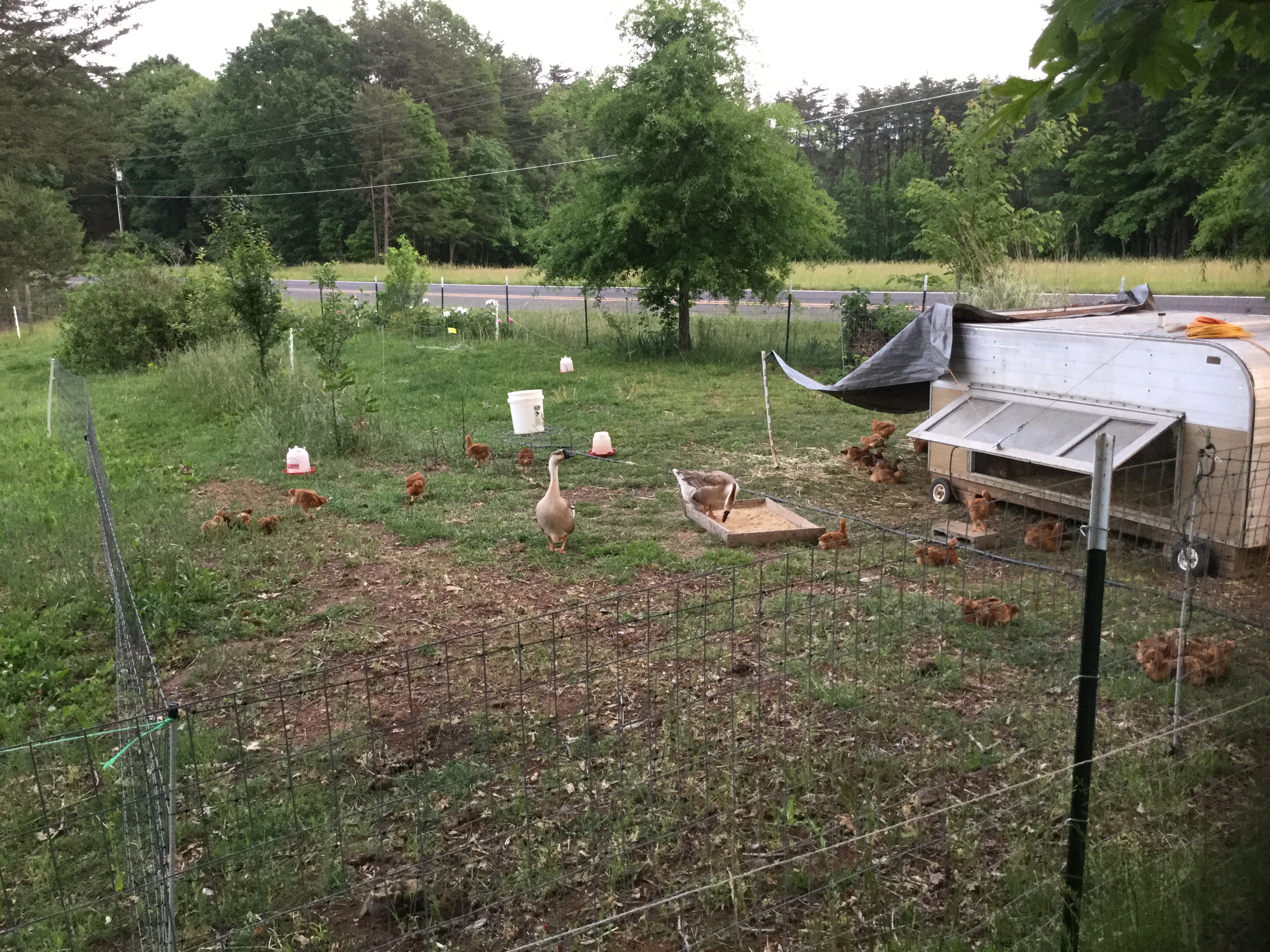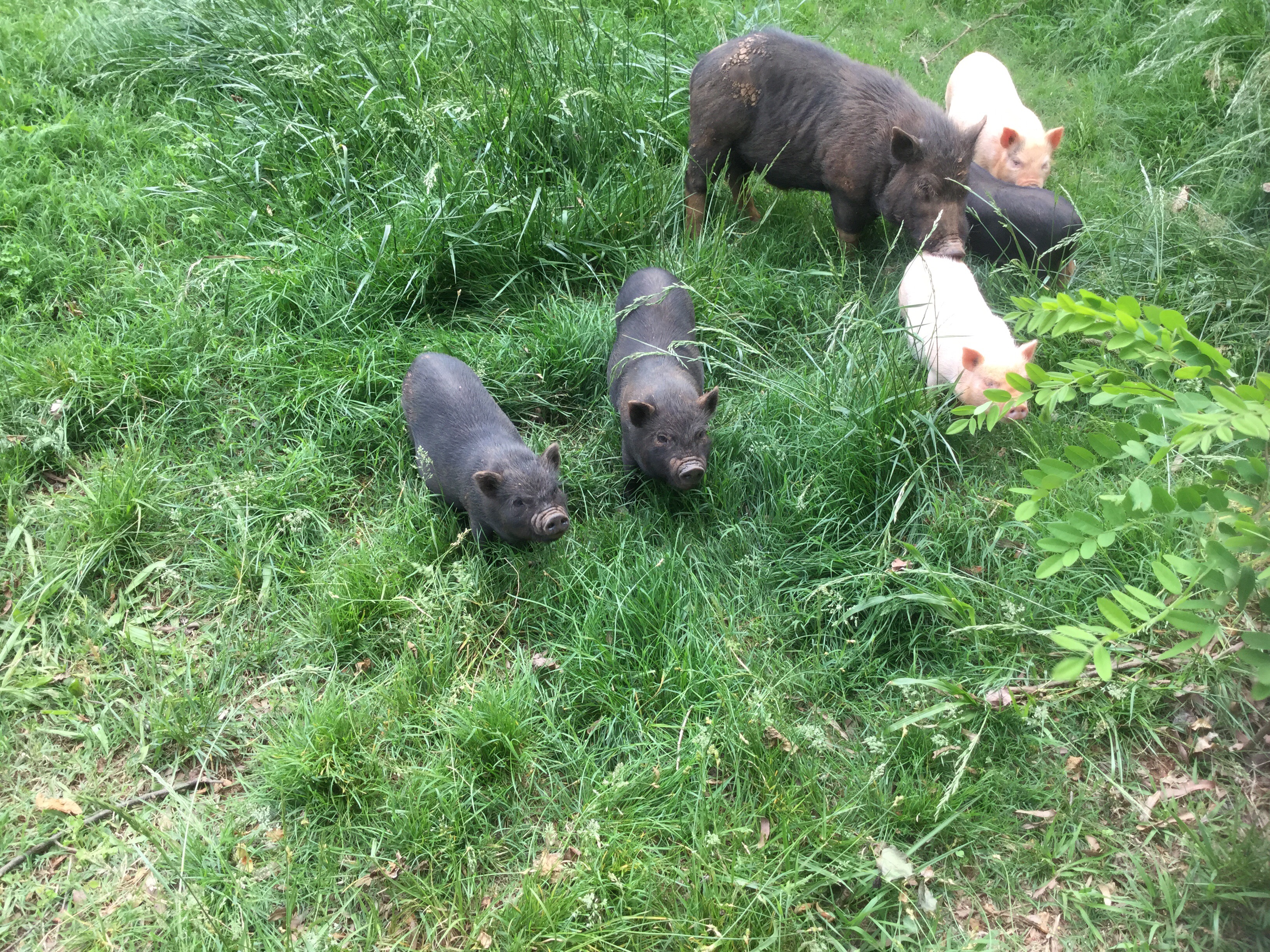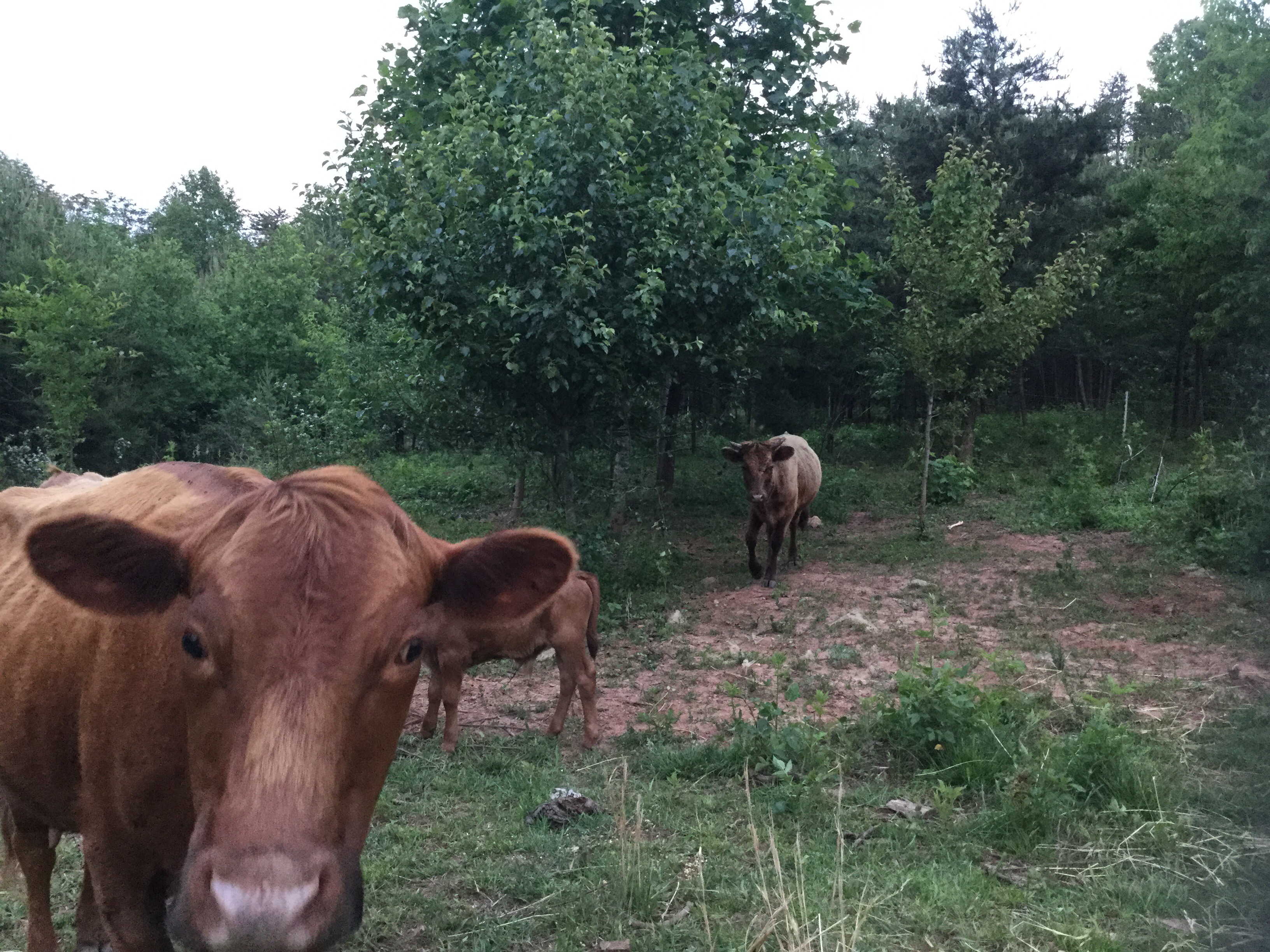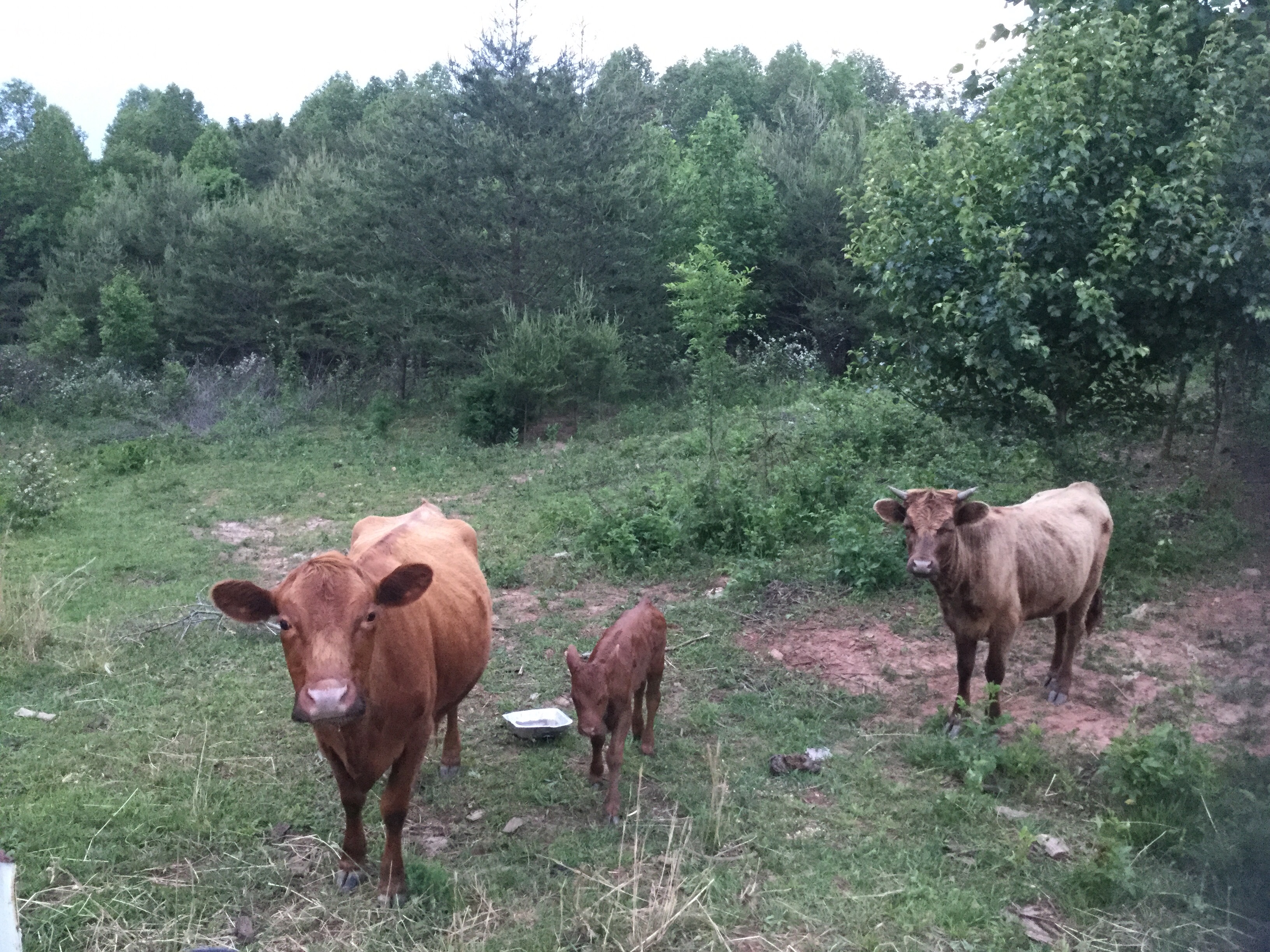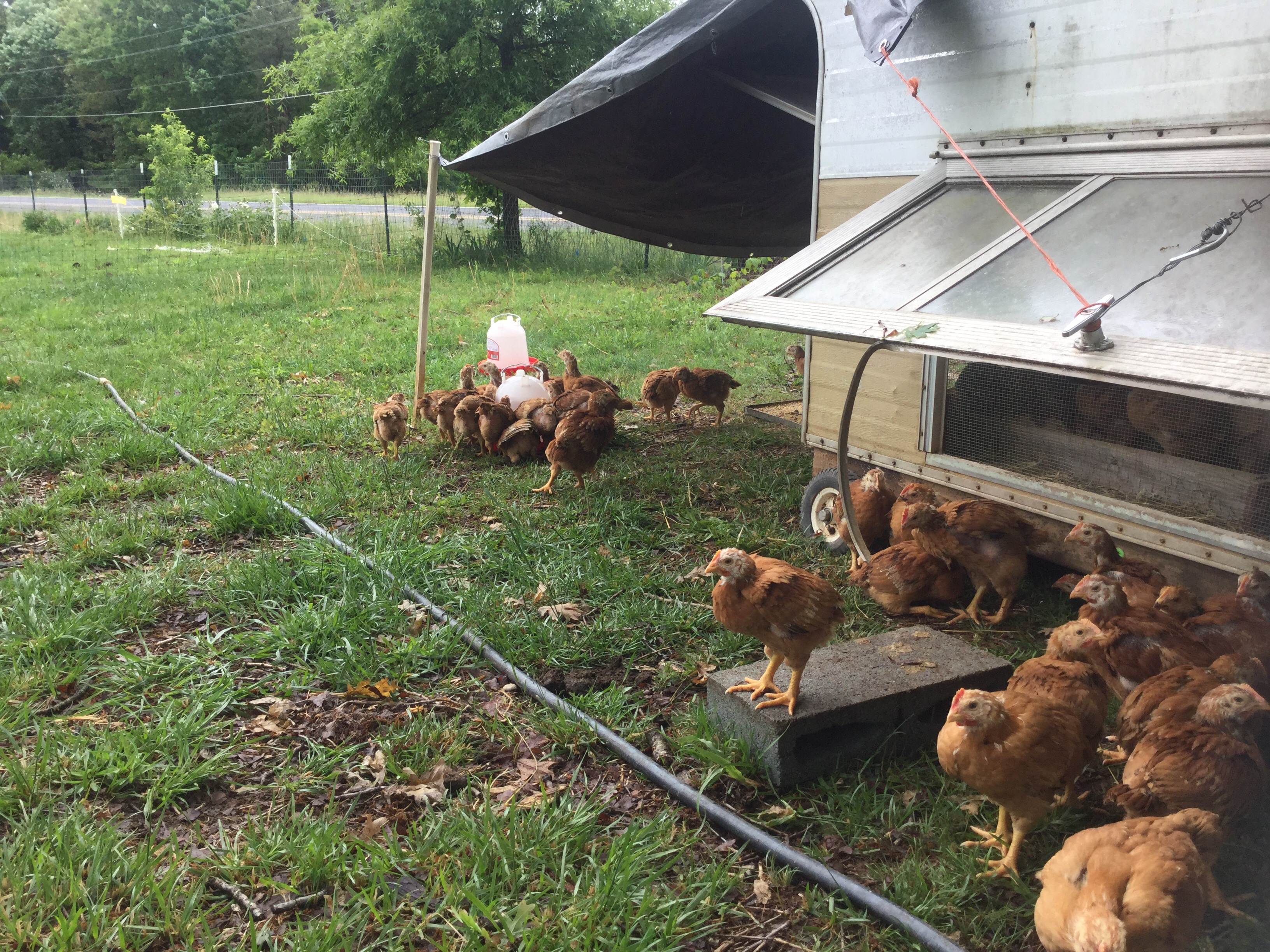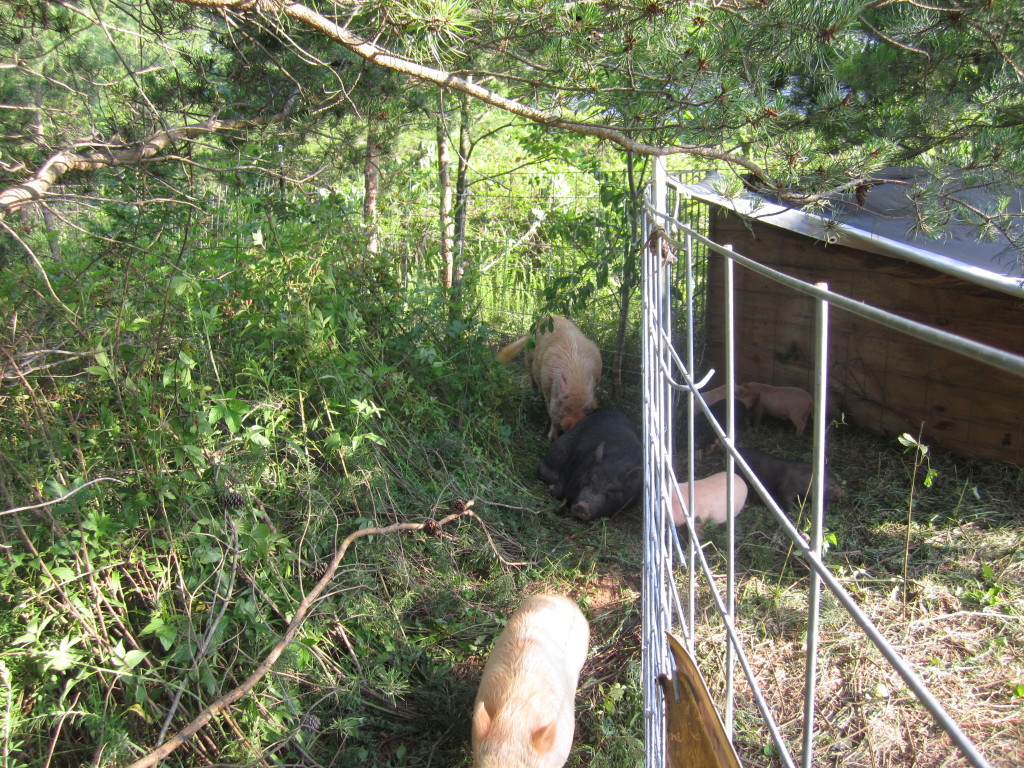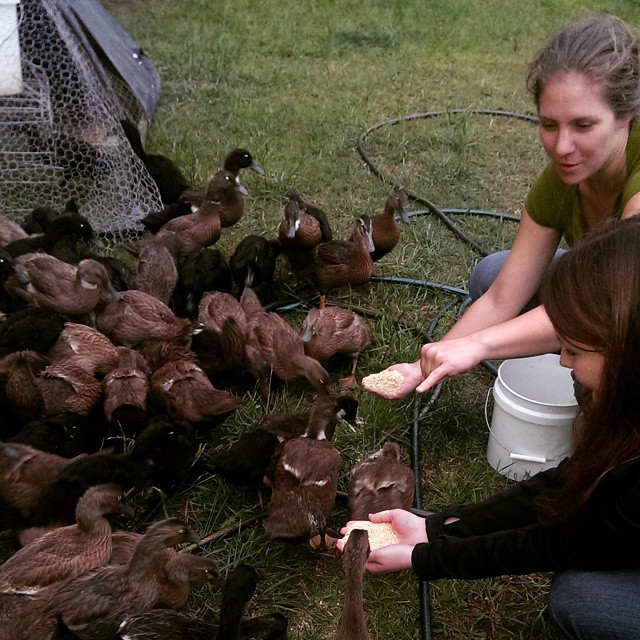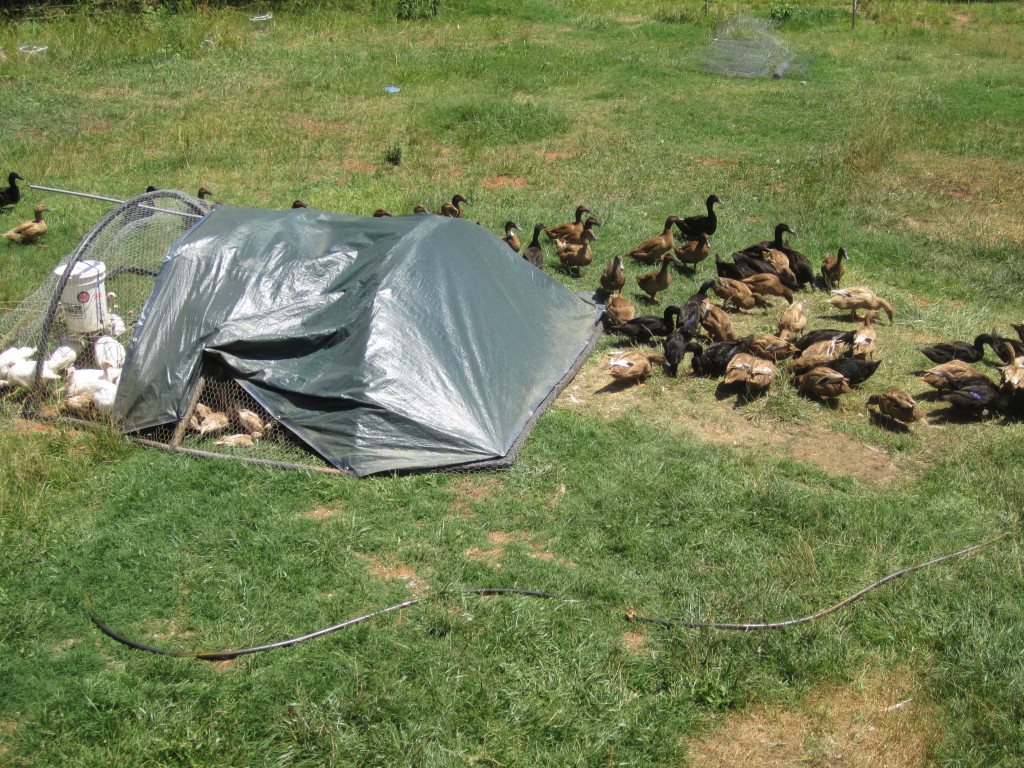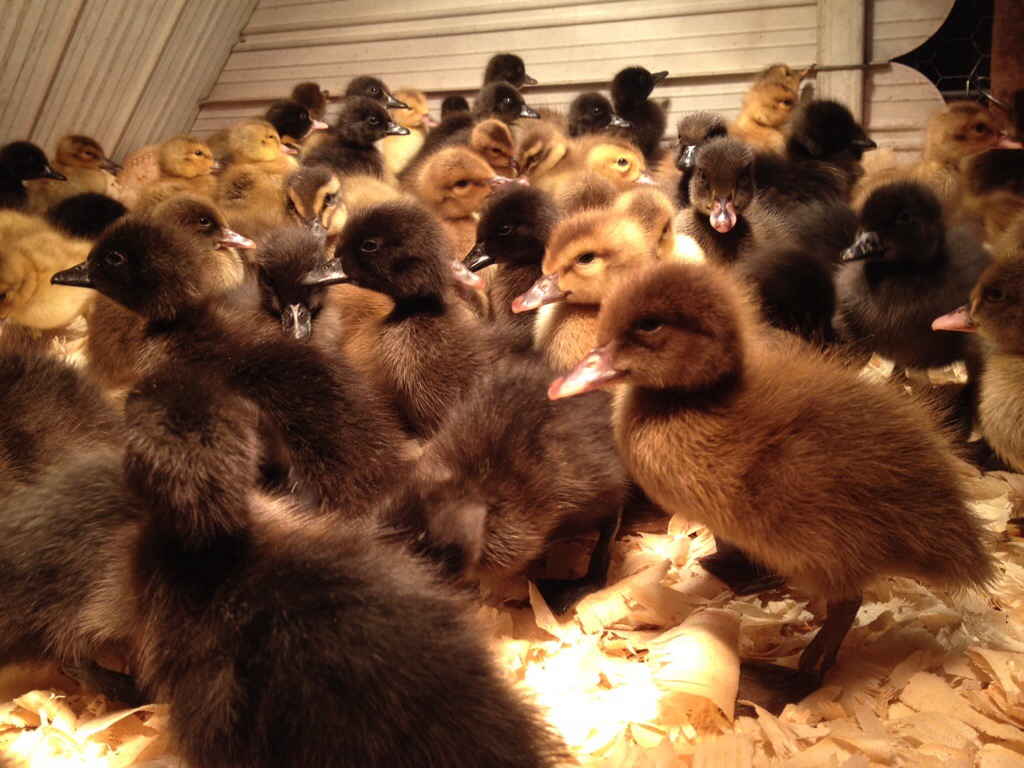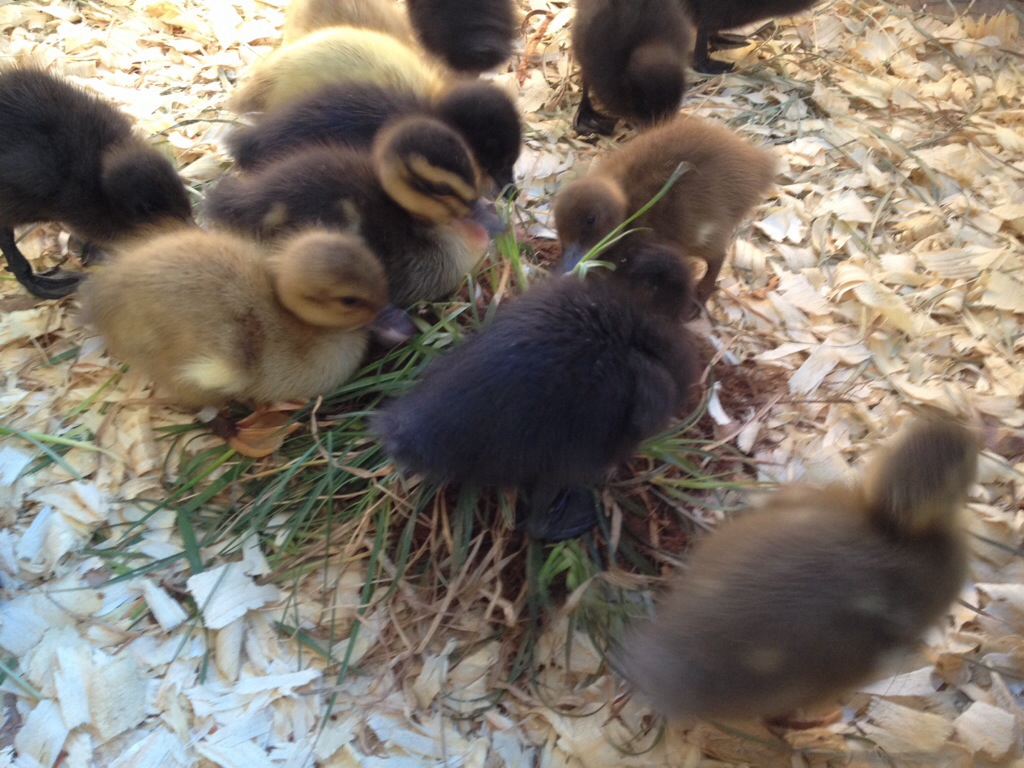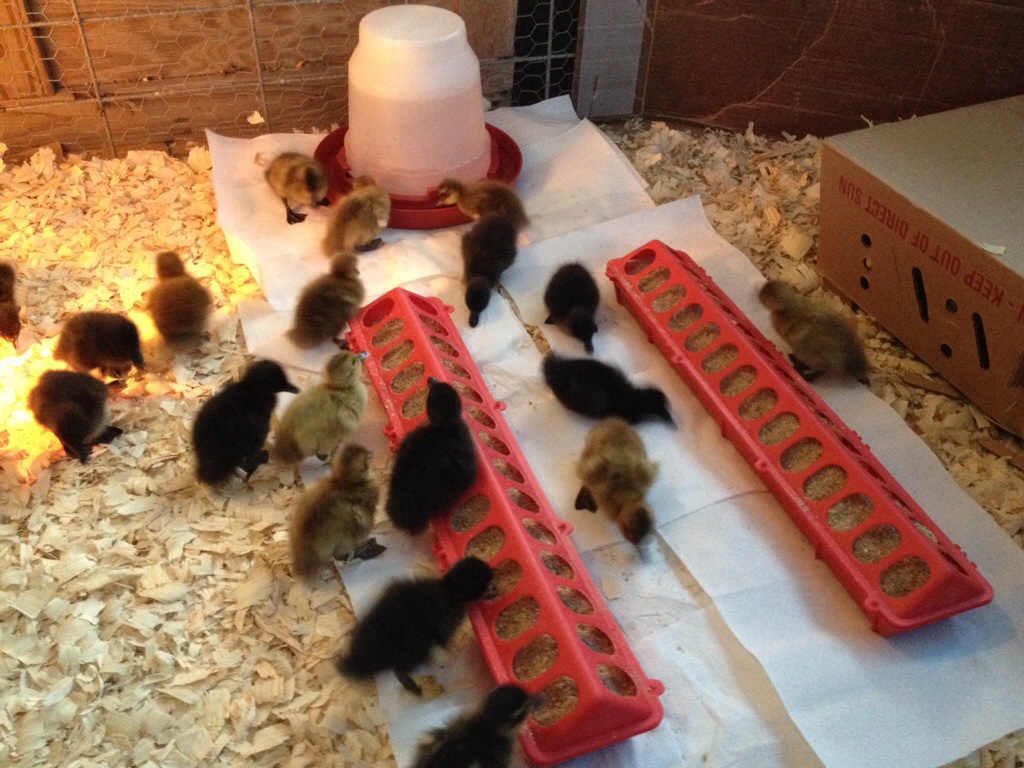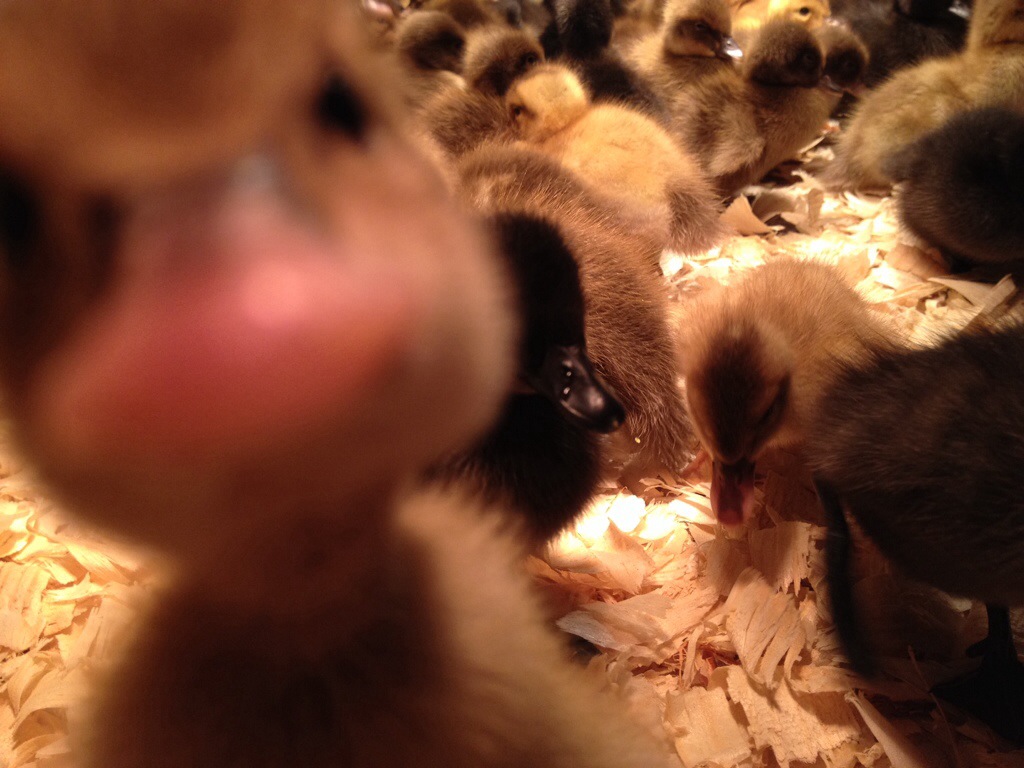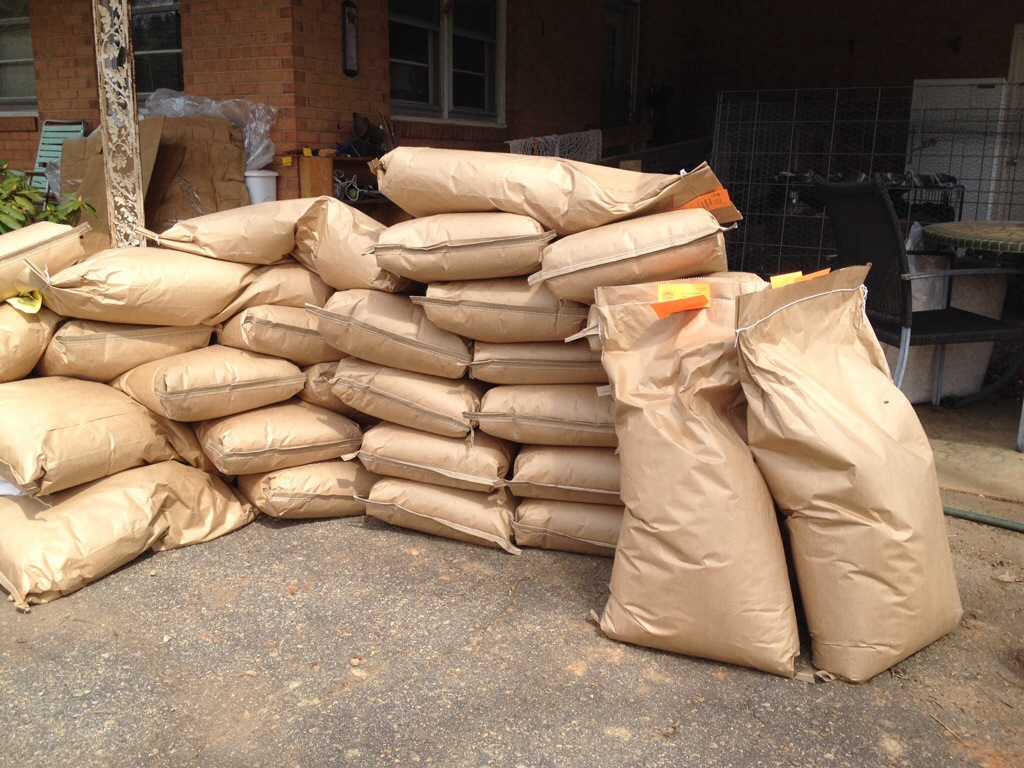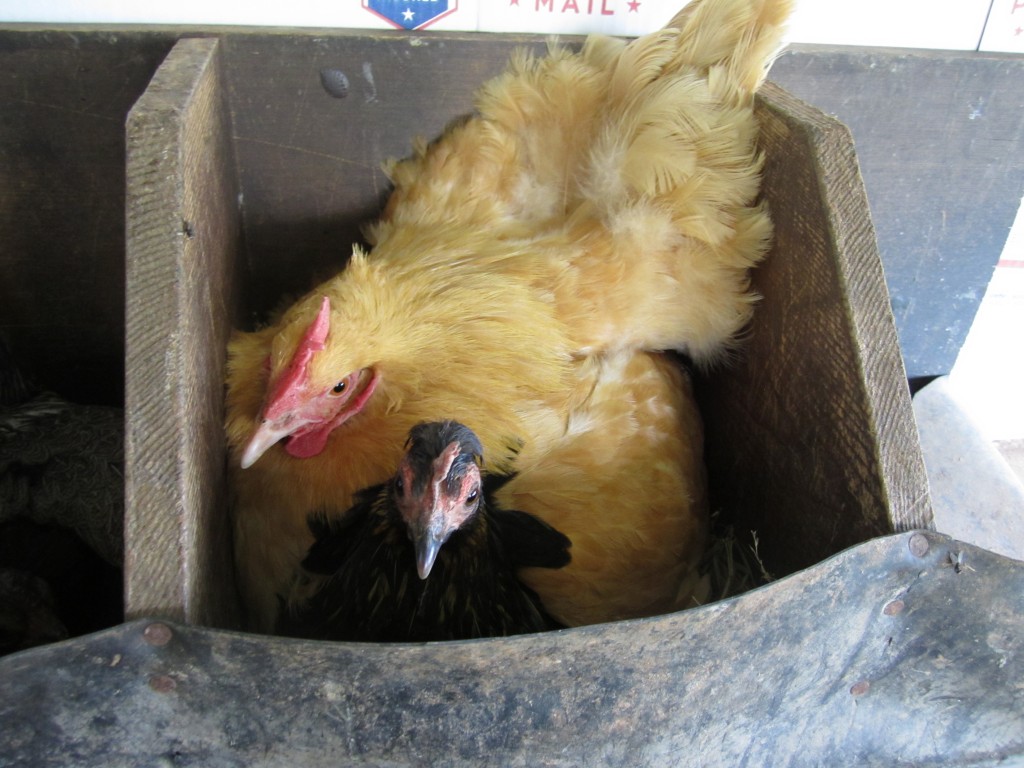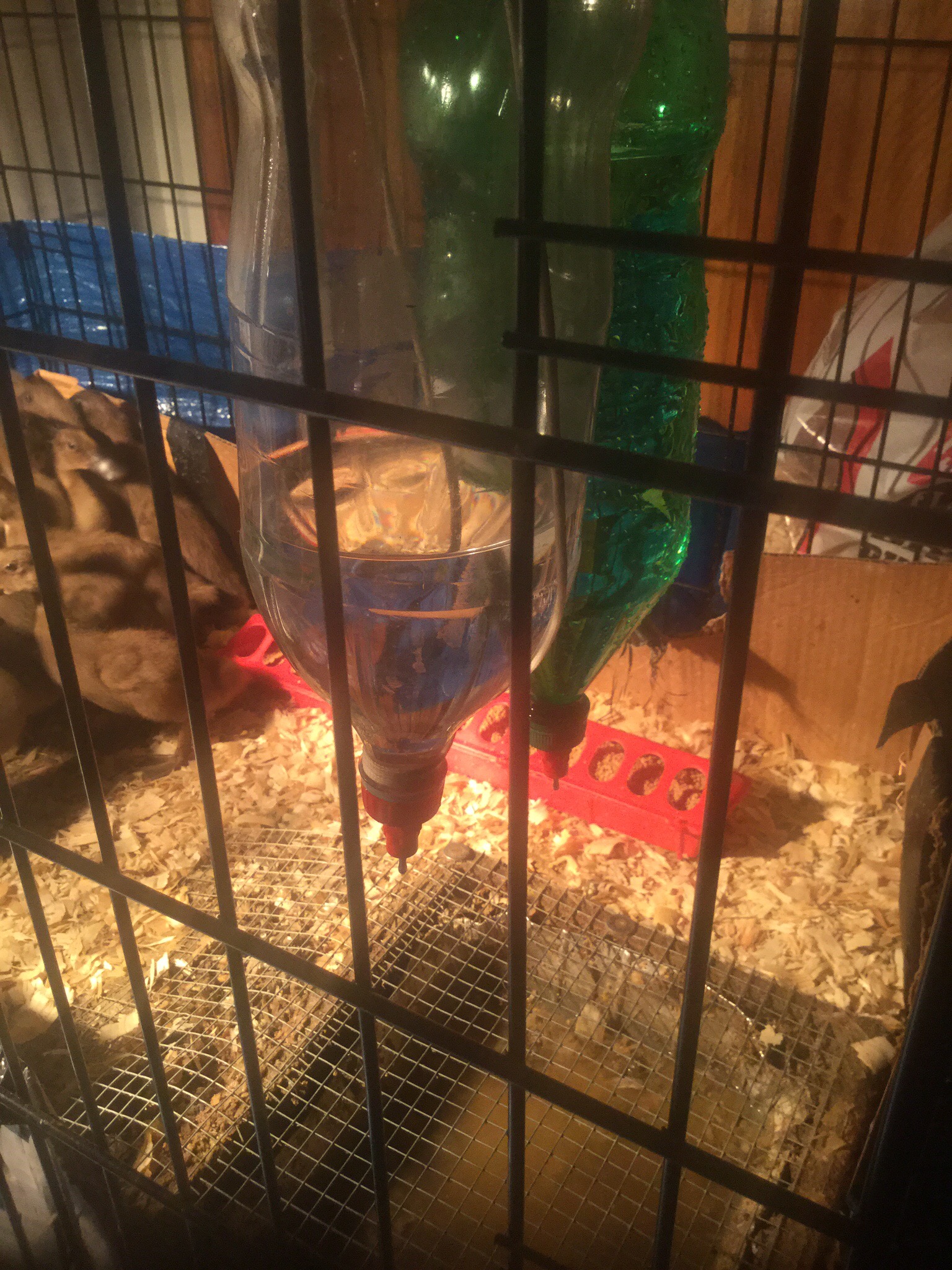Our flock of heritage turkeys are getting bigger everyday and will be nice and plump when Thanksgiving rolls around. They spend their days free ranging and foraging the fields, pastures and woods of our farm, but what do they actually eat?
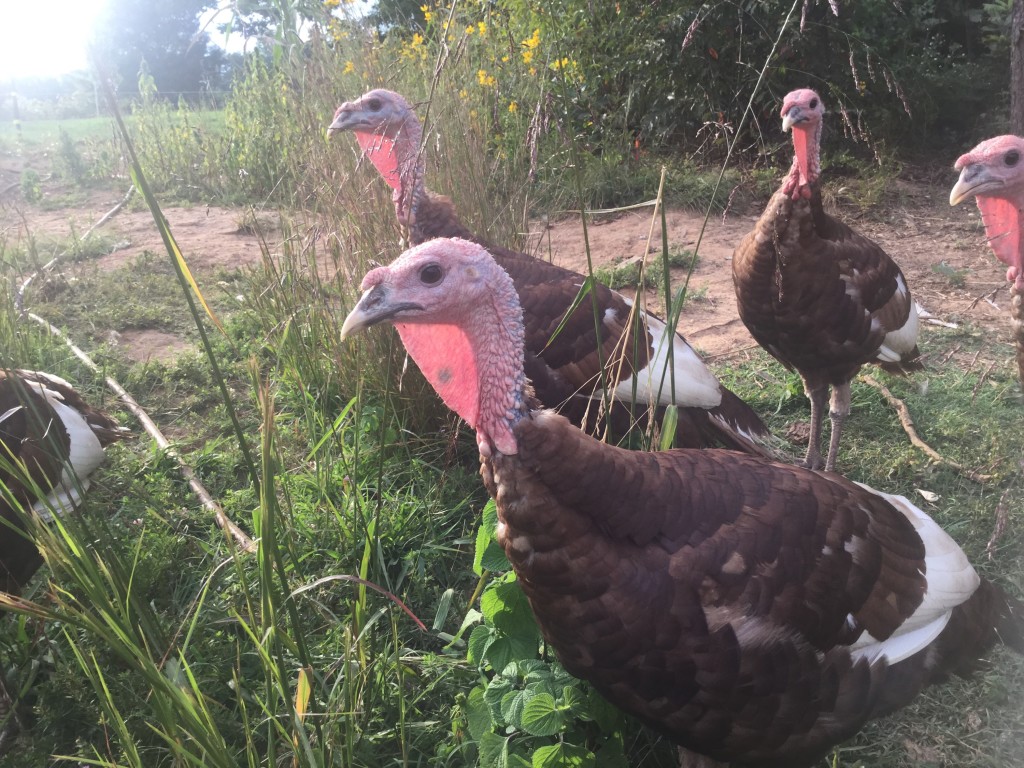
Free range turkeys enjoying the sun.
First off, we supplement them with the highest quality non-GMO feed available. They get a small amount in the morning, and a bigger ration when the sun starts to set to entice them back to the safety of their coop. Because we raise the slower growing, heritage Bourbon Reds, they aren’t as interested in the feed as a modern factory raised bird. They seem to prefer to forage for their food.
Our turkeys graze on green grass, clover, and other broad leaved plants. I have seen them devour a thick stand of pasture, and jump up to grab a midair bite out of 6 foot tall amaranth plants. They eat anything green, from chicory to plantain, and this helps to produce that wonderful rich flavor and the amazing health benefits of pastured poultry.
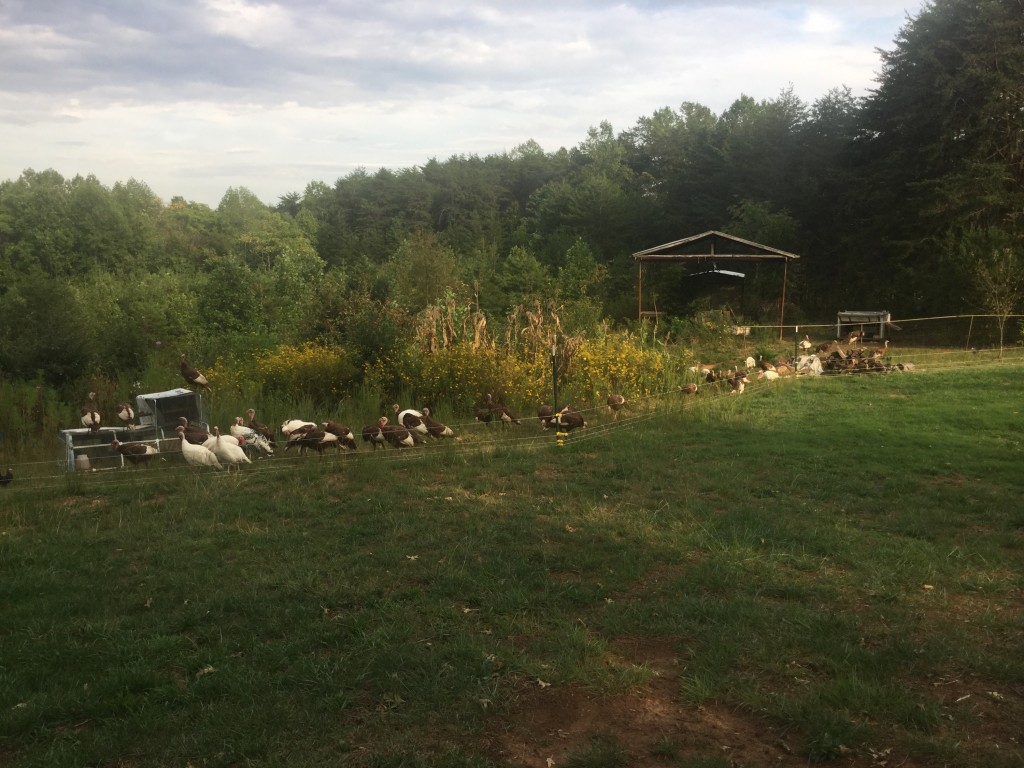
Because our heritage turkeys are out on pasture for their entire life, they develop flavor that can’t be found in a supermarket.
In addition to the green portions of plants, they also eat a fair amount of seeds. Some they pick off the ground, and others the harvest directly from the plant. We have stands of lambsquarter, grain amaranth, sorghum, and chia, and I have seen the turkeys eat them all.
One thing they love are surplus vegetables from our organic garden. They seem to favor heirloom tomatoes above all else.
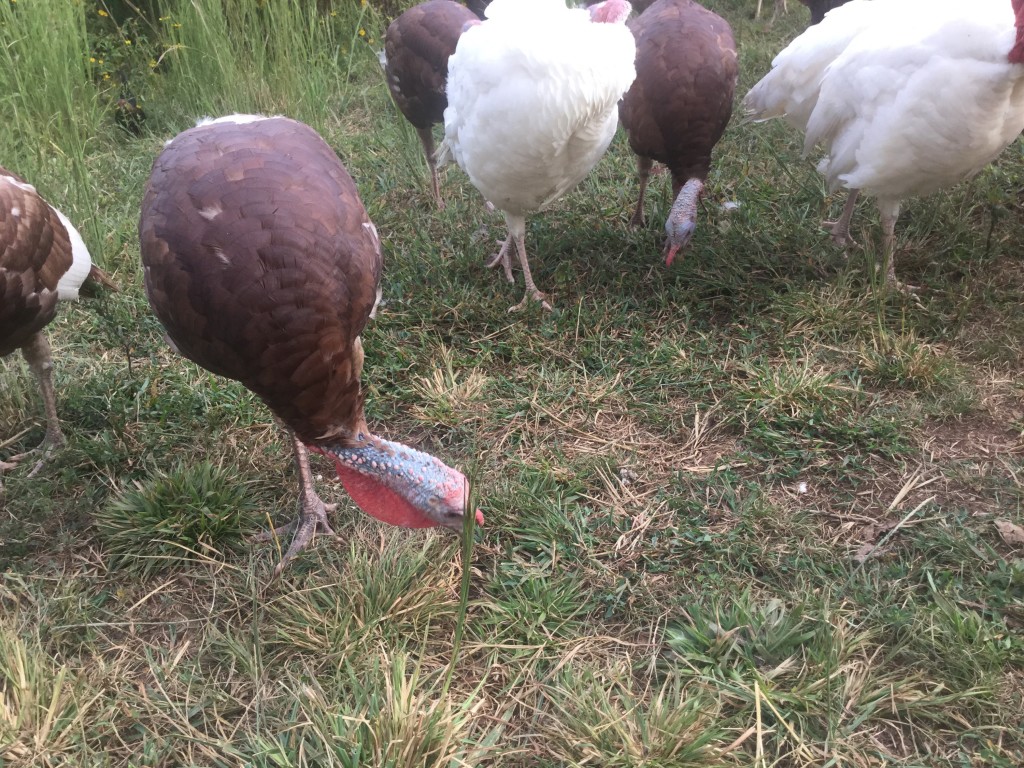
Searching for seeds and bugs.
But they don’t eat just plants while out on pasture. They also hunt and chase all sorts of insects and bugs. Grasshoppers are a rare sight on our farm now that the turkeys roam the fields.
And boy do they roam. While they spend a lot of time in the open pastures, they also range the wooded acreage too. Mature oak and hickory trees provide a hearty mast crop of acorns and nuts that the turkeys strong beaks and gizzards make short work of. This is another important aspect of their flavor development, and contributes to the terroir of all the animals raised on our property.
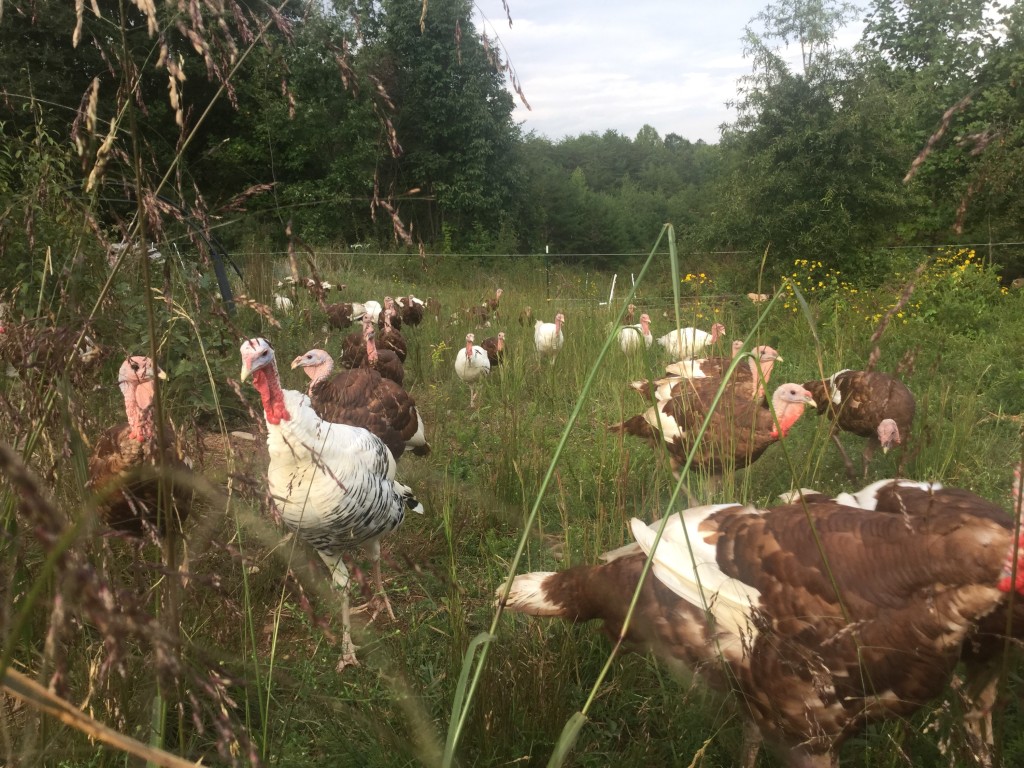
Reserve your free range bird today!
As you can see, your heritage thanksgiving turkey has been busy free ranging for both its food and it’s flavor. There’s still time to reserve your bird this year and lock in the special $7/lb. price. Please check out our heritage turkey page for more information on how to order.
